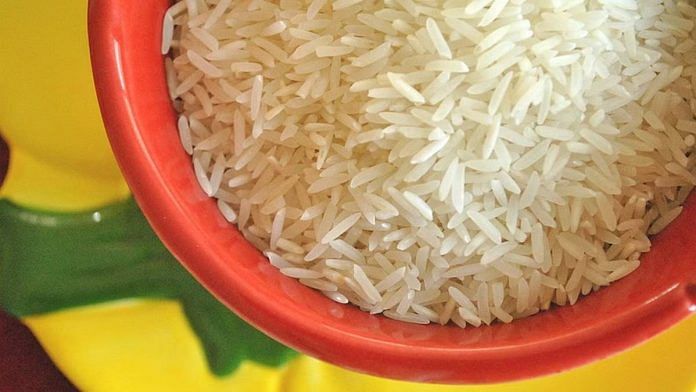Gurugram: The targeting of commercial ships, suspected to be headed to or from Israel in the Red Sea, by Yemen’s Houthi rebels in the wake of Israel’s strikes on Gaza has badly hit exporters in Panipat, Haryana’s textile hub, and those of basmati rice in the state due to increased freight charges and long delays.
The Red Sea is critical to enter and exit the Suez Canal, a crucial sea-link connecting Asia and Europe-America. Bypassing the Suez Canal requires the ships to go all the way around the entire continent of Africa — meaning, a huge increase in costs and travel times.
Panipat exporters, who are set to participate in two expos in Germany in January to showcase their products, are in a state of double jeopardy — besides the heavy freight charges they have to pay, many of them have been informed that the products they have dispatched for the expos will reach after the event, according to Lalit Goel, president of Panipat Exporters’ Association.
Speaking to ThePrint, Vijay Setia, former president of All India Rice Exporters’ Association, said that 80 percent of rice exports from Haryana go to the Middle East while the remaining go to Europe and the US.
“Ever since disturbance started in the Red Sea and Yemen’s Houthi rebels started attacks on cargo ships, freight per container for the Middle East has gone up from $600 to $2,000. Similarly, shipments for Europe and US that used to pass through the Suez Canal are now taking a longer route and ships are going around the Cape of Good Hope, at the bottom of South Africa,” he said.
“This is not only delaying the cargo but the freight that used to be between $2,000 and $2,500 has jumped to $5,500 and even to $6,000 in some cases,” Setia added.
The Houthis are an insurgent group which controls most of the northern part of war-torn Yemen. The group largely follows the Zaydi sect of Shia Islam. Reportedly backed by Iran, the Houthi rebels have declared support for Palestinian outfit Hamas in the ongoing Israel-Hamas conflict, and have been attacking ships trying to traverse the Red Sea.
Also Read: US-formed coalition in Red Sea part of aggression against Palestinians -Yemen’s Houthis
Delays, higher costs
According to Lalit Goel, exporters from Panipat — exporting items like bath mats, floor covers, dhurries, carpets, blankets, towels, curtains, table covers — have been badly hit in the wake of the Houthi rebels’ action.
“We have Domotex 2024, an international expo on flooring products in Hannover from 11 to 14 January. Similarly, Heimtextil, an international trade fair on textiles, is to be held in Frankfurt from 9 to 11 January. Several of our members participate in these expos every year and get good export orders from across the globe,” he said.
Explaining further, he added: “It is a practice that products are sent to their agents in the expo in advance by sea and the exporters reach there by air at the time of the fair. This time, our cargo has been delayed due to the rerouting of vessels and now, online tracking of shipments is showing that they will be delivered in Germany by 14 January, by which time both exhibitions will be over.”
“Our members are in a fix. We have no option but to send more goods by air transport now. While the cargo sent through the sea is already costing much more, we have to pay additional freight for the goods being transported by air now,” he added.
Goel said the countries for which exporters were paying $1,400 to $1,500 per container, are now costing $2,500 to $3,000.
“Shipping companies tell us that their vessels have to cover over 9,000 additional kilometres to reach Europe and the US,” Goel added.
Setia, who runs his basmati exports business from Karnal, said Haryana’s rice exporters send their products to 140 countries. “Last year, 45 lakh tonnes of rice worth Rs 38,500 crore was exported from India, of which Haryana’s share was 40 percent,” he explained.
Elaborating on the rice exporters’ troubles, he said that Saturday’s targeting of a vessel with 25 Indians on board in the southern Red Sea was likely to deepen the crisis further.
Even before this attack, few shipping lines were accepting orders for the Middle East and now it will become even more difficult, Setia pointed out.
“However, the way the Indian government has reacted and the Indian Navy has immediately swung into action, we are hopeful that things will improve,” he said.
(Edited by Nida Fatima Siddiqui)
Also Read: Who are Houthis, why Iran is arming them & what this means for Israel



